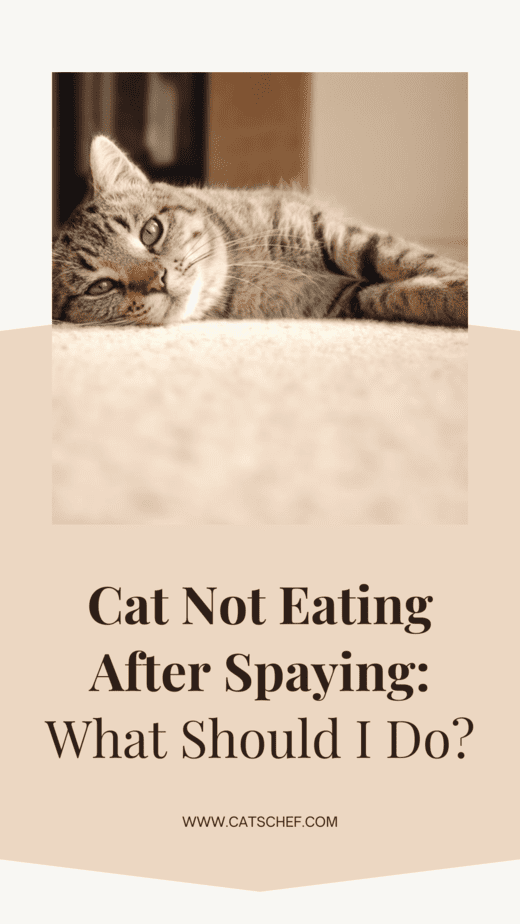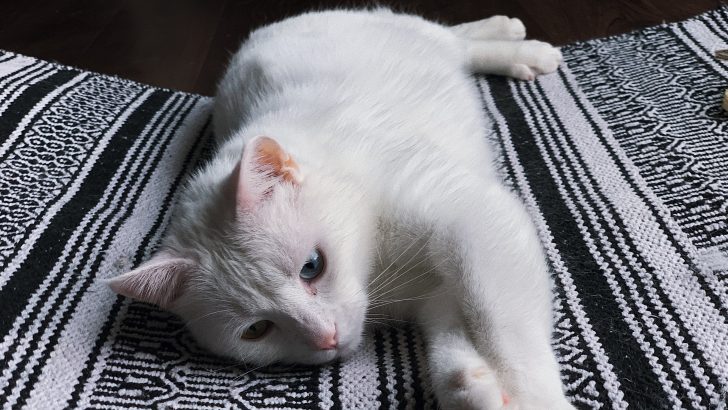Feeling anxiety before and after spaying is normal for your feline and you. If you notice your cat isn’t eating after spaying – don’t panic. It’s important that you stay calm and collected for your furbaby, as it will help her feel better, too.
This behavioral change is completely normal and expected after surgery. Not only is your kitty still under stress, but she’s probably feeling the effects of general anesthesia. Being patient and providing your furchild with the best possible post-op care is essential.
Don’t worry – you did the right thing by spaying your feline, even if it doesn’t seem like it now. You saved her from a lot of trouble in the future and she’ll be grateful for it once she goes back to her happy, cheery self.
I know you feel proud of her for being so brave, and you probably made a grand welcome at home for her. If she’s been hiding under the table ever since she got back and she’s been refusing to eat – don’t feel bad about it.
Learning how to take care of her post-operation is the first step in getting her back on her feet, and you came to the right place. Together we will go through possible reasons why your cat isn’t eating after spaying, as well as all the ways you can help her.
Why is my cat not eating after spaying? 4 potential reasons
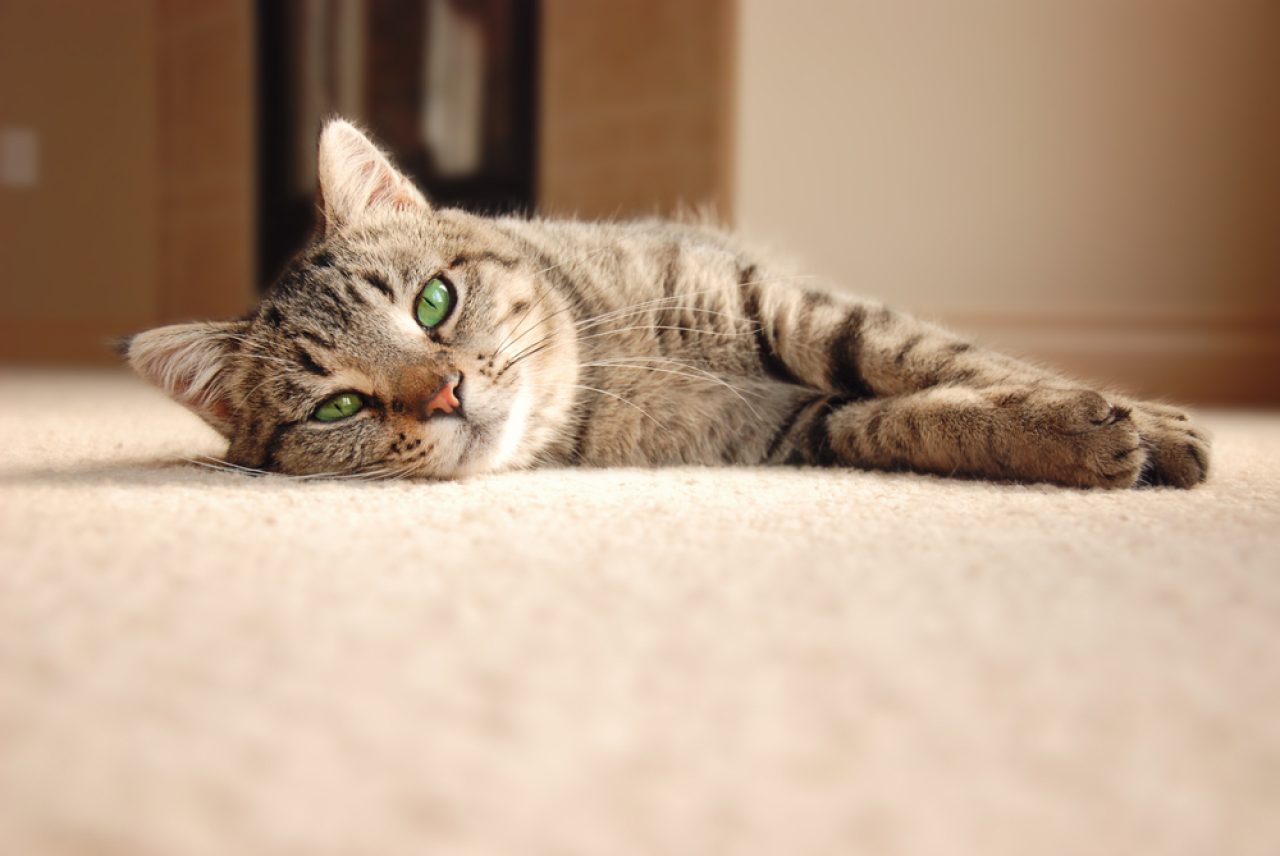
Your kitty has probably just been through one of the biggest challenges she’s faced ever since you got her. Anxiety, fear, loss of appetite, and lack of energy – they’re all normal behavioral changes that can occur after spaying. Don’t worry.
Before we get to the ways you can help her and take care of her after the surgery, let’s see what are the potential reasons why she’s been acting like this. It will help you understand why she’s not eating, but also find a way to get her back to her voracious self.
1. She’s still under the effect of general anesthesia
Just like humans, cats can also feel nausea after being under general anesthesia. If you’ve ever had surgery, then you probably know that eating was the last thing on your mind once you woke up. It’s no different with cats.
Anesthesia can take quite some time to get out of your cat’s system and the effects can be visible for days after the surgery. It’s important to stay patient and provide your cat with enough water and comfort until she gets her energy back.
The effects anesthetic drugs can have on your feline’s stomach usually reflect in the changes in her routine and appetite. It’s hard to tell how long your kitty might avoid food because it all differs from cat to cat. Normally, some felines need up to 36 hours to stop feeling the effects of general anesthesia and start eating again.
2. Elizabethan collar and her are not the best of friends
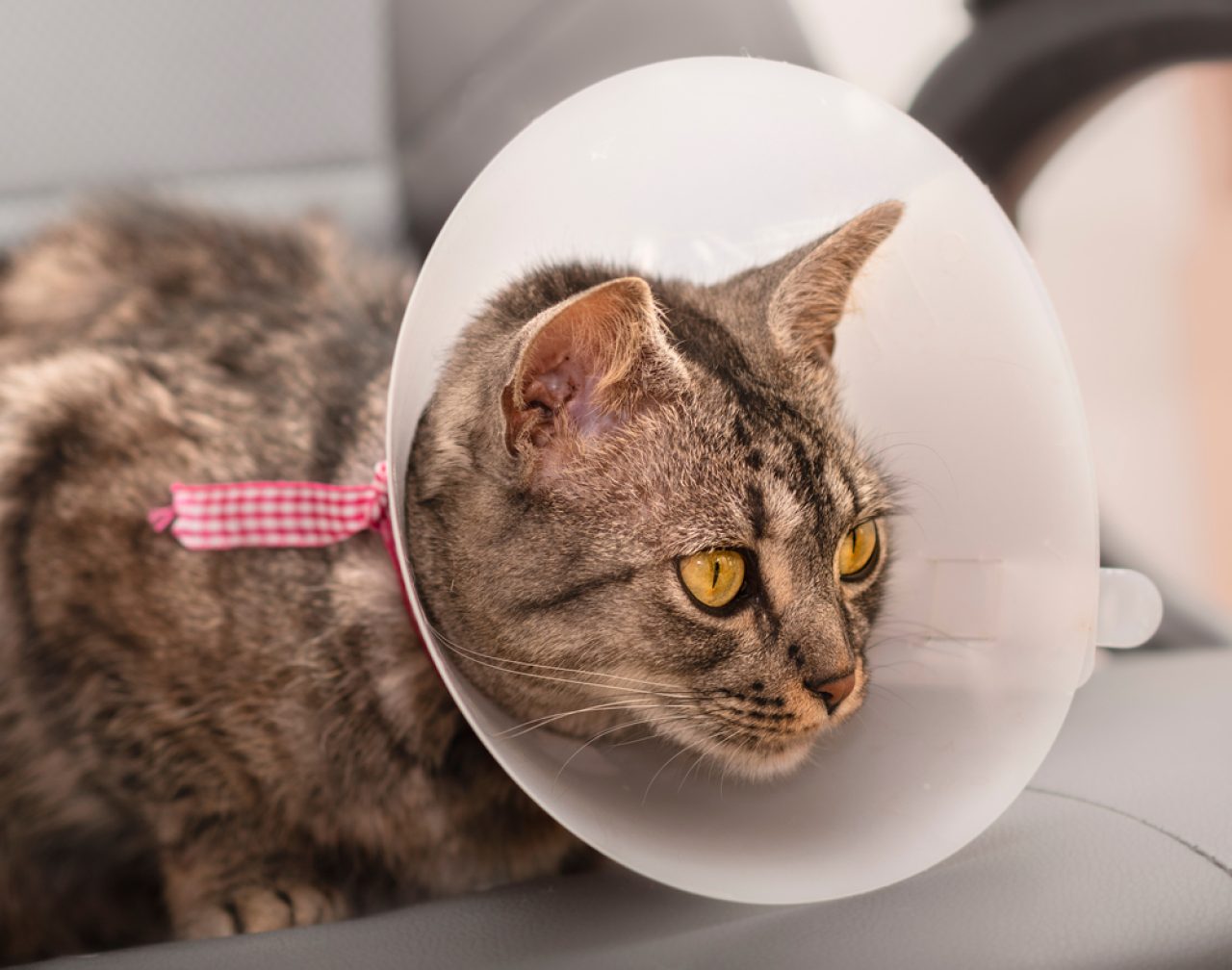
If your feline stopped eating, it could be because of her new post-operation accessory! Cats are prone to scratching and biting the sensitive parts of their bodies. Because of that, vets often use Elizabethan collars to protect the stitches left after the surgery.
Although most cats won’t chew on their stitches, it’s still a good idea to prevent them from touching them. It’s important that you keep your feline’s incision dry and as clean as possible. It’s hard seeing your fluff uncomfortable and in pain, but it’s even harder having to keep her from scratching her stitches on your own.
Because of that, it’s a good idea to use an Elizabethan collar, just to make sure the incision stays sterile and untouched. Although your cat will probably hate it, keeping it on is for her own good, so try to be persistent and not give in.
All of this might make your kitty feel trapped and stressed, which often leads to loss of appetite. On top of that, eating with such a huge accessory around her neck isn’t the easiest thing to do. Thus, your feline just might stop trying after some time.
If you notice this change, try taking her collar off while she’s eating, and then putting it back on after she’s done. Putting your feline in a cage might have a similar effect, especially if she’s not used to it. She might start avoiding litter, food, and water. But don’t worry, she just needs some time to get used to it.
3. She’s in pain
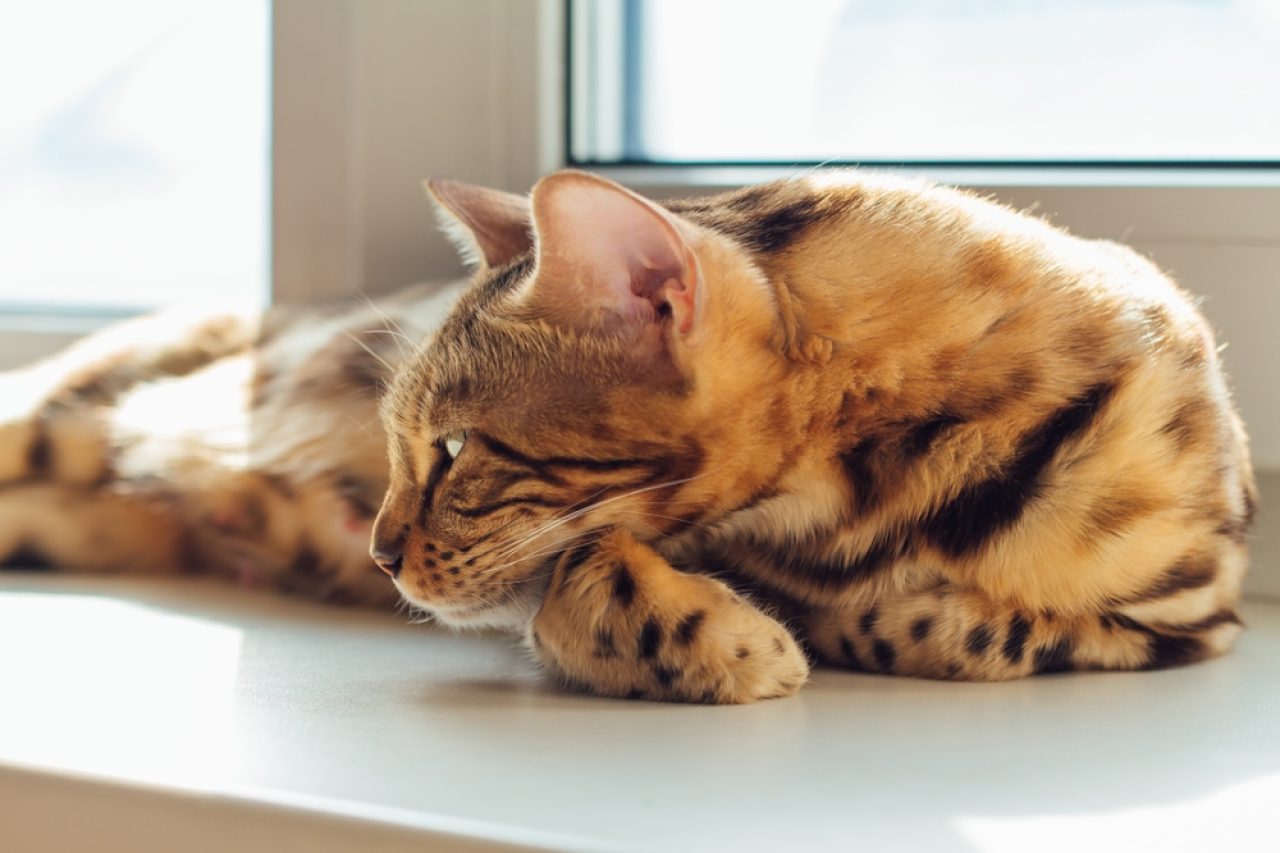
Having surgery is never easy, and it’s normal that your cat feels pain and discomfort even after a few days. Especially after anesthetic drugs wear off and she doesn’t have any follow-up treatments. All of this, naturally, leads to loss of appetite.
Moreover, if the vet used an endotracheal tube during the surgery, your kitty might end up having a sore throat. Because of that, cats often have trouble eating and drinking water because it causes pain and discomfort.
If you notice your furbaby trying to eat, but giving up after some time, it could be that she’s experiencing a sore throat. In that case, she’s not dealing with a loss of appetite, but having trouble eating in general.
If you suspect this is the case, it would be a good idea to contact the vet, so they can establish a proper post-operation treatment. In no time, your little furry companion will be back to her old self.
4. She’s having stomach issues
Going through surgery, not eating for 12 hours prior, and being under general anesthesia can’t be good for anyone’s stomach, let alone your kitty’s. Feeling stressed and anxious on top of that, it’s normal that she’s experiencing some tummy troubles.
The most important thing you can do is not force your cat to eat after spaying. It would be great to ask your vet for a prescription diet after the surgery so that you can provide your furry baby with the best possible post-op care. This way she can heal properly and avoid stomach issues.
If your cat hasn’t been eating for 24 hours after the procedure – don’t worry. It’s a completely normal reaction in cats after spaying. However, if this goes on for a few days, it’s best to contact the vet for a proper treatment plan.
How do I get my cat to start eating again after spaying?
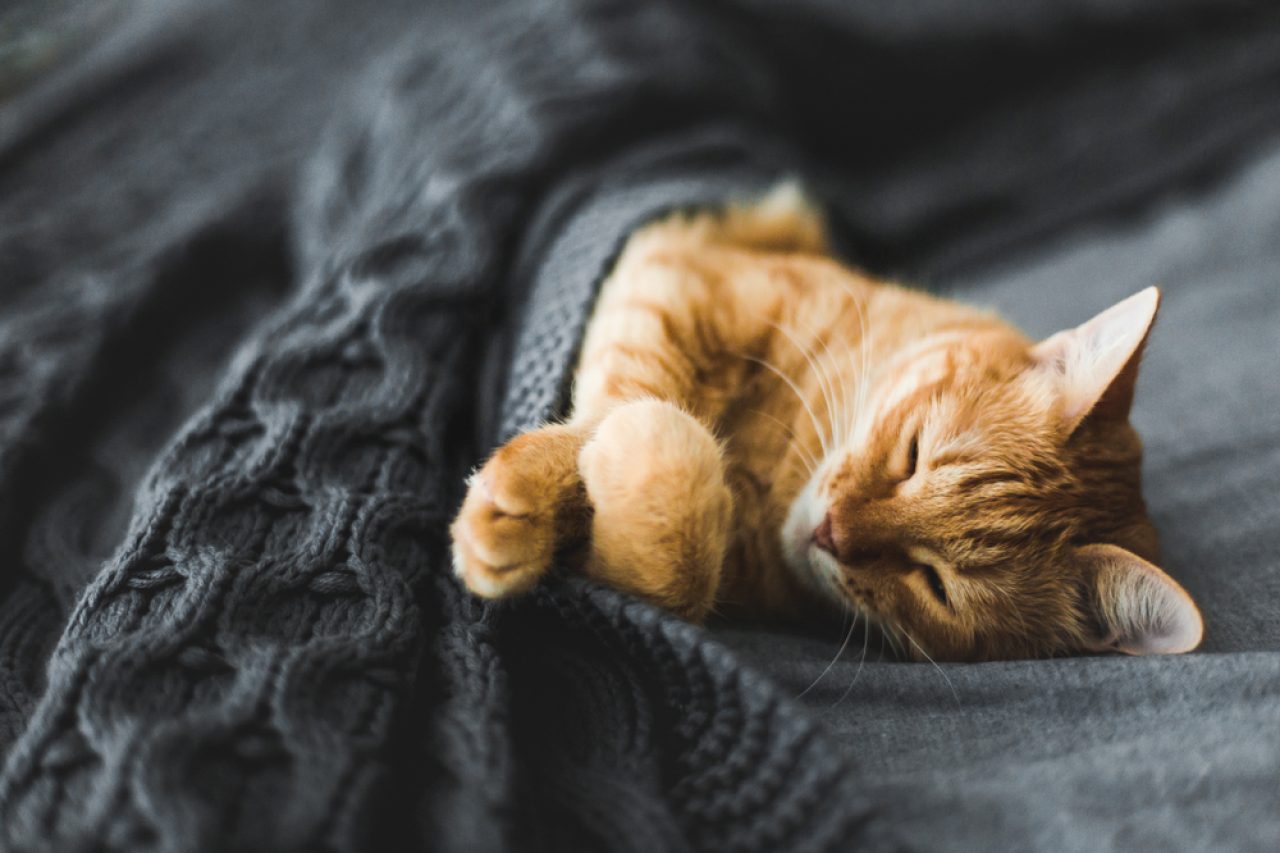
As we’ve mentioned earlier, it’s completely normal for your cat to have trouble eating 24 hours after the surgery. Sometimes, this can go on for a few days – and it’s usually nothing to worry about.
However, there are still some things you can do to help your feline get her appetite back as soon as possible. We all know how much cats love to eat. With some patience and time, your feline baby will be back to her gourmand self.
1. Follow the post-op guide
After the surgery, your vet might give you post-operation instructions. These guides include various things you should pay attention to. Some of them are putting your feline in a crate or a small room to stop her from running around, keeping an E-collar, and monitoring the incision daily.
It’s crucial that you follow the guidelines so that your fluff can heal most easily and painlessly. Some vets even prescribe a post-op diet, which helps felines get their appetite back and start eating after spaying. However, you should never force your kitty to eat, but rather give her time to do it on her own.
Your feline should always eat a healthy diet, but maintaining one after surgery is essential to get her back on her feet. If you haven’t already, this would be a great chance for you to put together a healthy routine that your kitty can follow year-round. It would be a great idea to ask your vet for nutritional advice, too.
2. Give her small but frequent meals
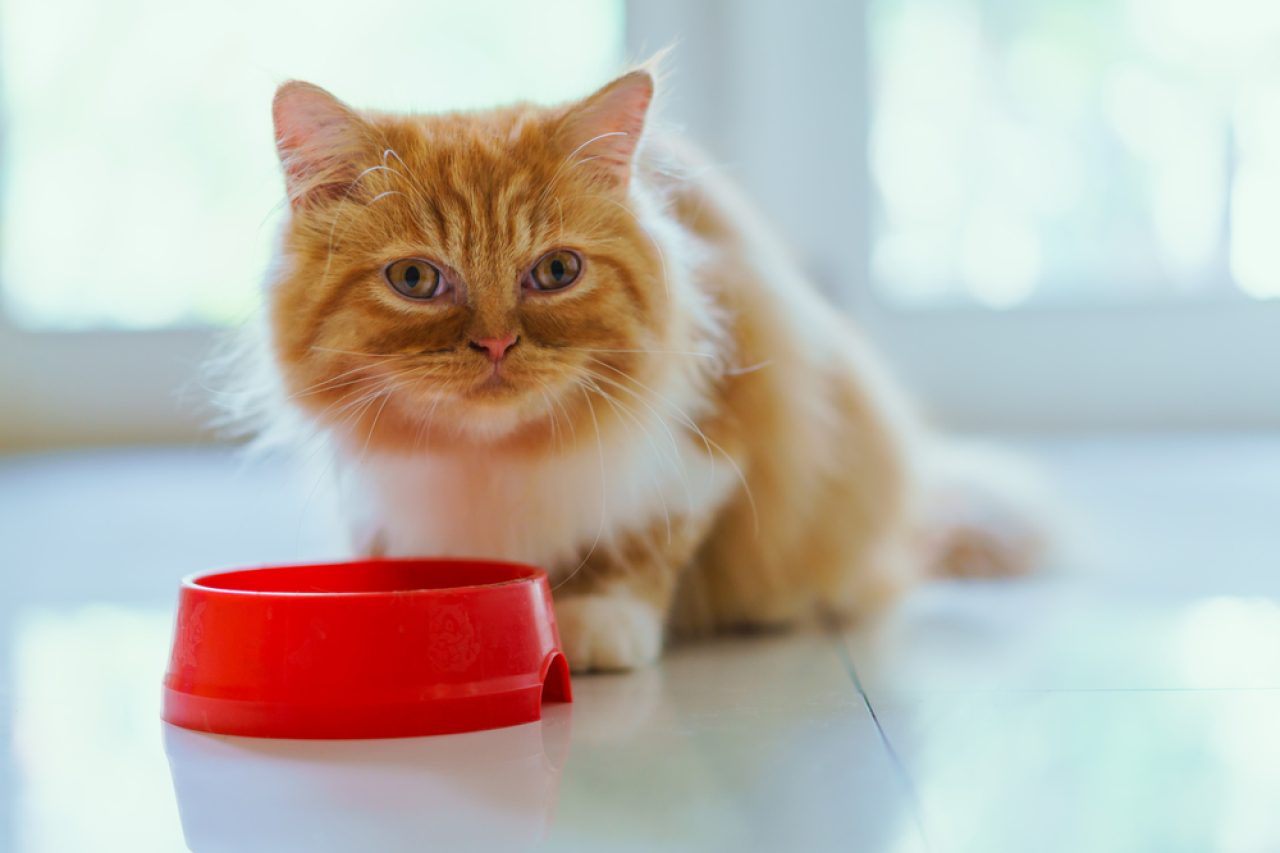
Don’t overwhelm your kitty by trying to put food into her mouth and forcing her to go back to her normal diet. Although it’s crucial that you don’t pressure your cat to eat after spaying, it’s also important that she doesn’t fast for more than 48 hours.
Recovery isn’t easy, which is why it’s important that our felines have enough energy and nutrients. If your cat has lost her appetite, try feeding her small and frequent meals to encourage her to start eating again. Once she starts feeling better, you can increase the amount of food and extend the time between meals.
Another good idea would be to leave some water and food in the room where your cat rests after surgery. Most kitties feel better when they come home, so leaving food will give her the option to munch on it when she feels good enough to do so.
3. Feed her by hand
Going through surgery might leave your kitty feeling stressed and traumatized. Because of this, a lot of cats feel too scared and nervous to start eating again.
Hand-feeding your fur baby might give her a sense of comfort and encourage her to eat. Simply being by your side can make your feline feel better, so sneaking in a bite or two would be a great idea. Sounds like a win-win situation to me.
Start off by washing your hands and placing a small bite of food on your hand or your fingers. You can also try tapping it gently on her mouth so that she gets the taste of it, or rub it on her paw so she can lick it off.
Not only is this a good way to get your cat to start eating again, but it’s also a really sweet way to bond. You’ll see just how much your fluff trusts you, and it might help with her appetite, too.
4. Stay close to your fur baby
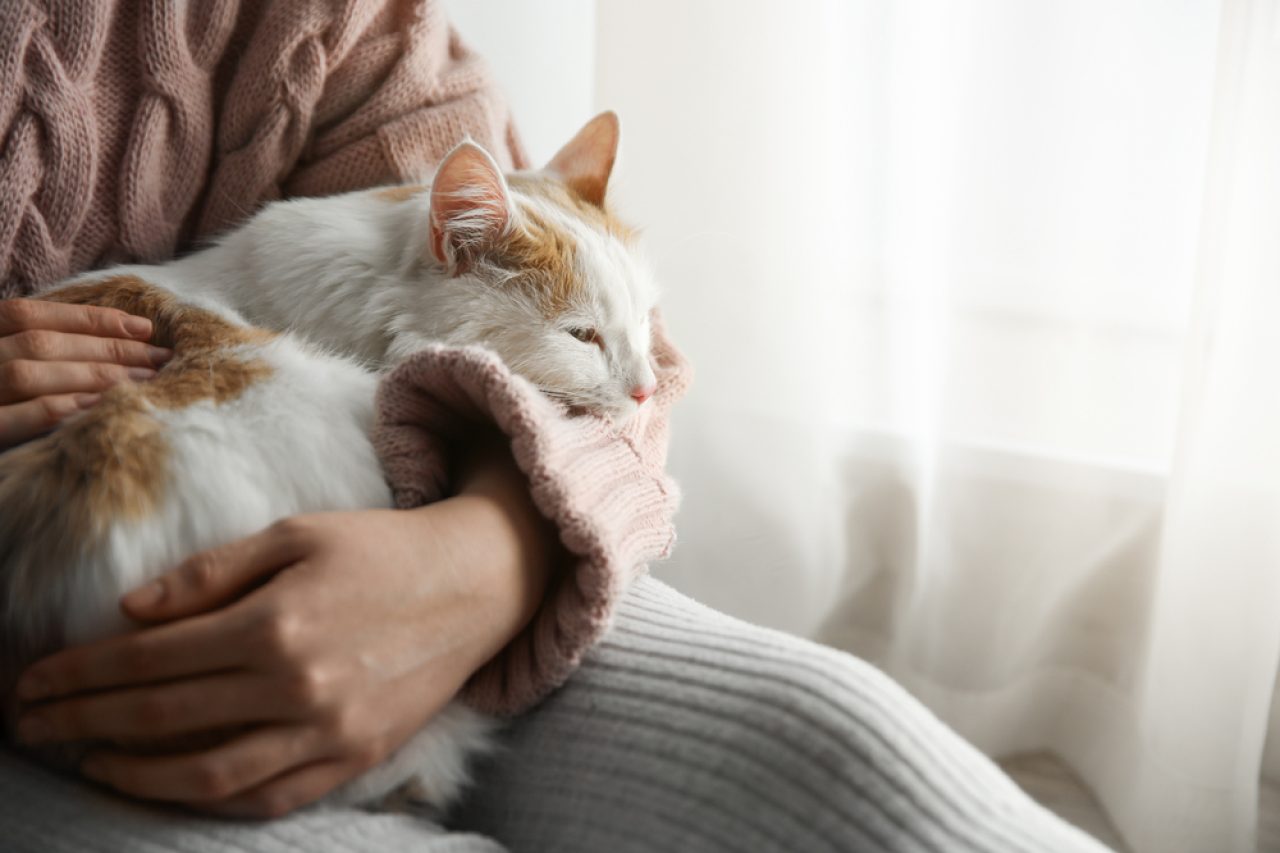
All that stress, fear, and a change of environment can leave your feline in need of some peace and quiet. That’s when food is the last thing on her mind. When she’s feeling like that, spending time with her favorite human might be the best remedy. And I bet this won’t be an issue for you, either.
You might not be aware of just how much your presence means to your furry baby. After the surgery, make sure not to leave her alone for too long. It’s especially important to stay close to her when she decides to eat.
Petting her while she’s snacking is a good way to show support and encouragement. She’ll see that what she’s doing is right and that it won’t hurt her. Your presence is crucial at times when your cat needs to feel safe and protected.
If you usually don’t let your cat sleep with you, post-surgery might be a good period to let her nap by your side. Even cats who hate sharing a bed often show interest in sleeping with their parent after a traumatic experience. It’s their way of seeking comfort and protection in their most vulnerable state.
5. Try changing her food
If your cat is anything like mine, then you know what’s it like to feed a picky eater. Some felines simply have their preferences and they don’t want to eat anything else other than their favorite brands. Diva behavior.
After the surgery, these things can change, and your kitty might be open to trying new things. This would be a great period for you to try experimenting with her food by mixing different things. Making a light homemade meal would be a great idea, too, and you might find something new for your cat to enjoy.
6. Give her medication
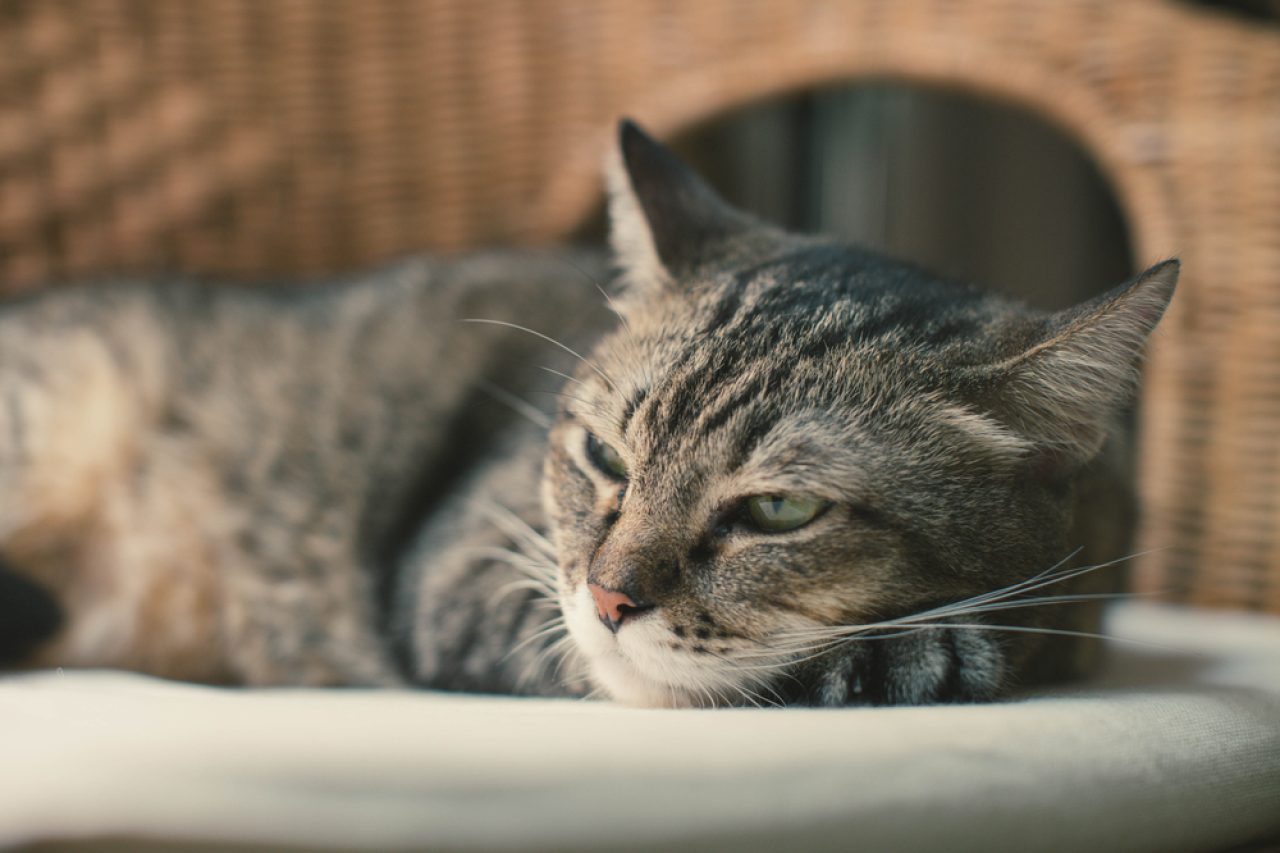
If everything fails, you still have to somehow help your cat start eating to avoid any other medical conditions. Medication shouldn’t be your first choice, but it’s still better to give her some if she simply refuses to eat after spaying.
It’s important not to give your feline any meds on your own. If your kitty doesn’t start eating, go back to the vet and they’ll give her an appetite stimulant, which will help her get her cravings back.
How to take care of your cat after spaying
Good post-operation care is crucial for a healthy and fast recovery in cats. It can also help greatly with helping your kitty start eating and getting back to her normal routine.
It shouldn’t take much for your cat to get back on her feet. A little bit of patience, care, and some time with her favorite human is all it takes. Here’s what you can do to help your little patient be happy and healthy again.
1. Manage her pain
After the surgery, your vet should prescribe some pain relievers or other medications that can help you manage your feline’s post-op discomfort. Make sure never to give medication on your own, without knowing the exact dosage that’s right for your fluff.
Whether it’s antibiotics or pain relievers, the vet will give you instructions on how much your feline should take and when is the right time to do so. Vets will also often prescribe some anti-anxiety medication to help our feline friends stay calm.
You should never give your cat human medications on your own, as they can be extremely toxic to cats. The most important thing you can do is follow the instructions to avoid any possible side effects.
2. Keep her all comfy and cozy at home
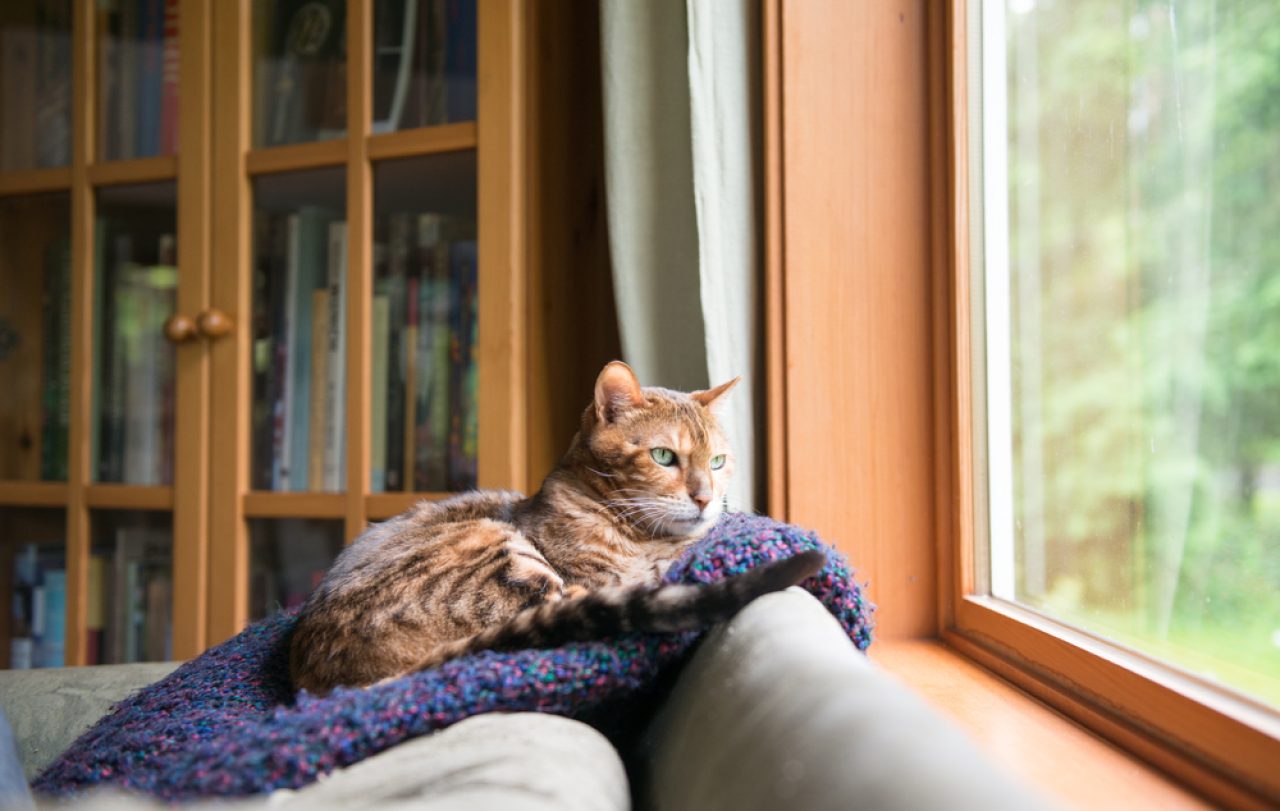
We all know our cuddle buddies love feeling cozy and comfy. After the surgery, multiply that by ten. After such a traumatic event, all your kitty will need is some peace, quiet, and coziness.
While she’s at surgery, set up a super comfortable and soft bed for your snuggle bug. Make sure she’s got enough room to spread out so that there’s no pressure on any part of her body. She’ll probably be in pain once the anesthesia wears out, so make sure she’s the softest and coziest she’s ever been.
3. Keep her stitches and bandages clean and dry
As the incision heals, the stitches inside will dissolve as well. However, if your feline has outside stitches, your vet will have to remove them around two weeks after the surgery. They’ll let you know which stitches they’ve used so that you know how to take care of them properly.
Your feline will probably have bandages, as well. It’s crucial to keep them clean and dry at all times. If your cat likes to roam outside, covering the bandages with a clean wrap would be a great idea. Just make sure to take the wrap off as soon as she’s back inside to avoid sweat build-up and possible infections.
4. Attend the follow-up appointments
No matter how much care you provide for your feline, it’s crucial that the vet monitors her recovery as well. Attending follow-up appointments will help you avoid any infections or side effects your kitty might experience.
The most important thing you can do is stay calm and near your furry baby. She needs your presence and comfort, and in no time she’ll be better than she was before.
Read more: Cat Not Eating After Convenia Injection: Should You Worry?
